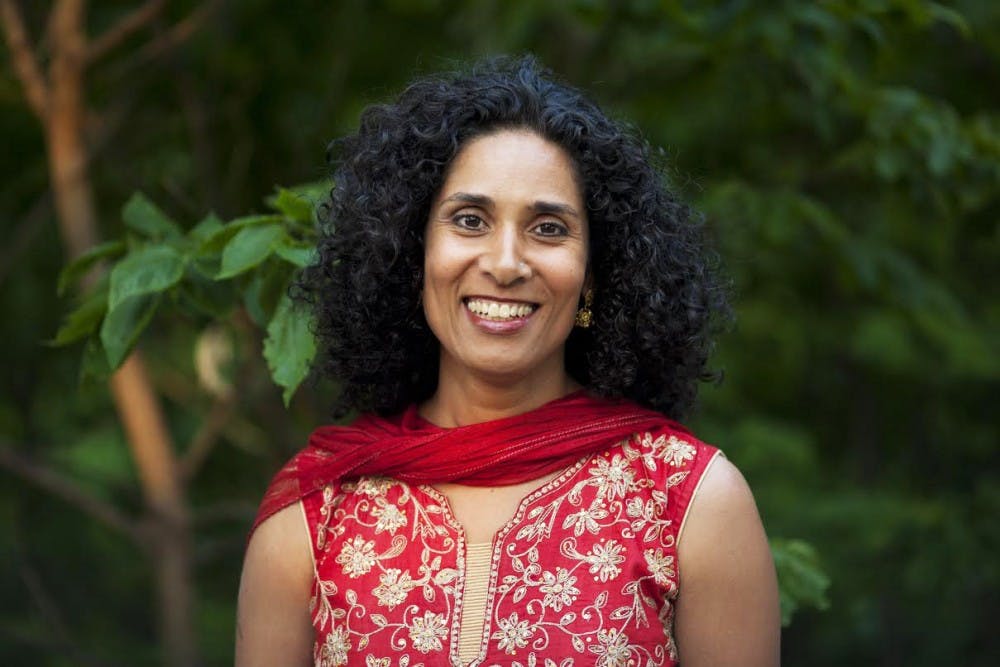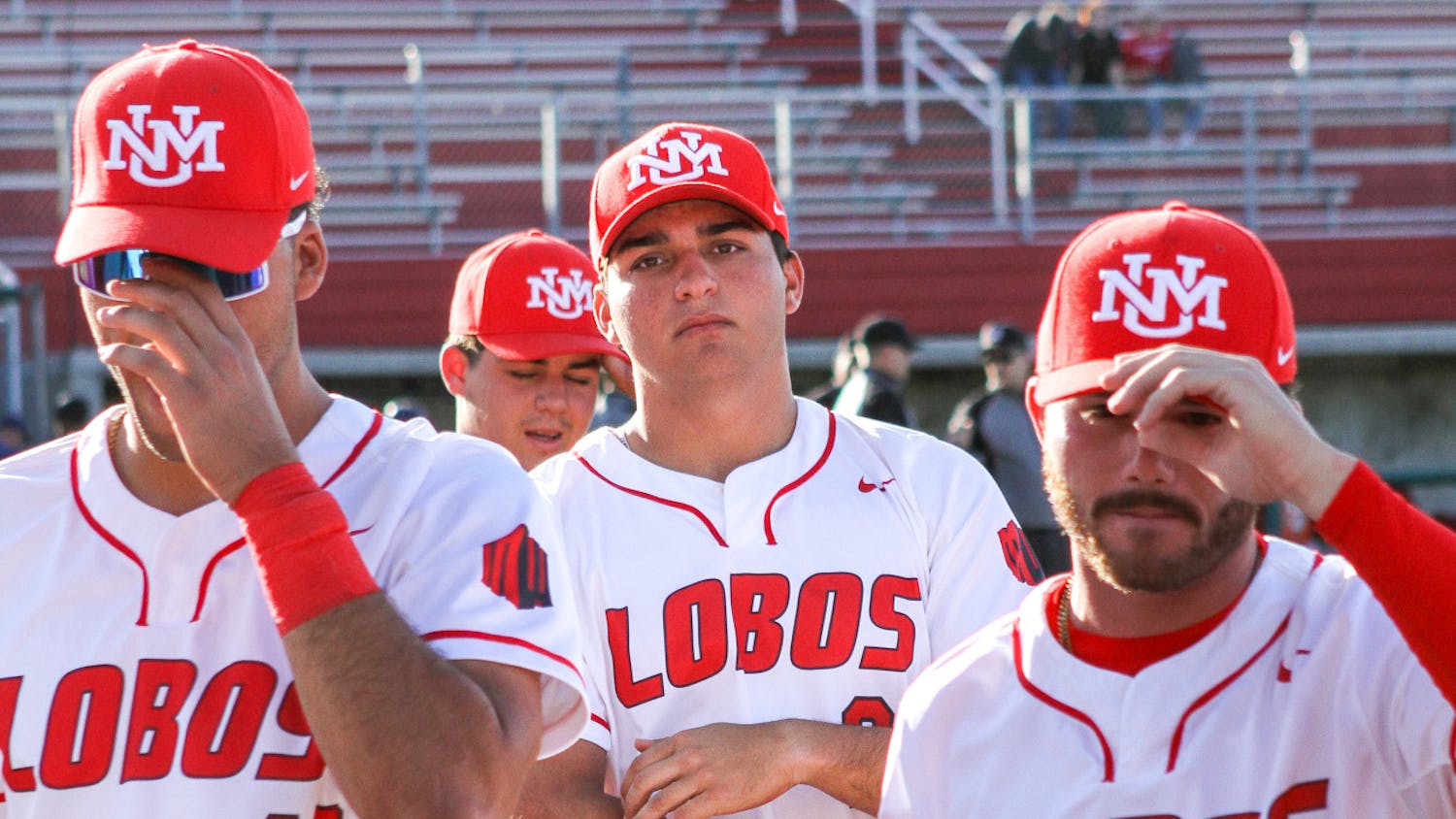Dr. Nana Osei-Kofi, Director of the Difference, Power, and Discrimination program at Oregon State University, was received last week by members of the Communication & Journalism Department as well as others within the UNM community in the Centennial Building Auditorium. The event, titled “#FightRacism: Educating for Social Justice,” is part of the 2016 Interdisciplinary Insights Lecture Series. The Daily Lobo caught up with Osei-Kofi afterwards for a Q&A.
DL: Would you provide us with a definition of ‘racism’?
NOK: I guess there are lots of different ways to define it. (It's) this sort of understanding about race where we attribute particular characteristics to different “racial” groups, and based on that we then make decisions about the value of those people.
There are material conditions that are shaped by those assumptions, those values, those beliefs about people as somehow part of this categorization. It’s the way that we categorize people according to skin color.
DL: Could you talk more about ‘racialization’?
NOK: When we talk about racialization, it reminds us of the act of thinking in particular ways, of attributing particular values and beliefs to certain people and to certain ways of being. We think a lot about skin color, we think about phenotype, those types of things. So it’s just a way of naming that process of thinking about people in those ways.
DL: Are human beings responsible for making “race” real?
NOK: So, racism, there’s power attached to it. So when you have the power to shape people’s living conditions, to shape the conditions under which they live their everyday lives, to shape their access to resources or their lack of resources, the quality of their education, the quality of their healthcare, those are all the ways in which racism works.
DL: Any words of reconciliation for contradicting approaches - attitudinal, material, systemic - to racial theory?
NOK: I think the key piece is about the fact that your attitudes alone are not going to change the conditions under which I live, under which somebody who is experiencing racism lives, because racism is embeded in our policies, in our processes, in our practices, and so just because you “see” someone differently, or have a different value or appreciation for them, doesn’t necessarily mean that it changes the conditions.
DL: So you think fighting racism only begins with a change of mind, all the work comes next. Are there people who would beg to differ?
NOK: I think there absolutely are. So, I mention the example of college campuses, we could do training that has to do with attitudes and people looking at each other differently, but that doesn’t mean that it increases access to that institution because unless we change our policies around admissions, and who we see as worthy of admission, the criteria by which we accept students and evaluate student contributions, unless we change those, we have not changed the structure.
Get content from The Daily Lobo delivered to your inbox
There are some people who would also say "I don’t care about people’s attitudes, you can feel however you want about me, but I want the opportunity to have a different experience or to live a different way. I want access to these resources."
DL: Can you talk about trends in demographic diversity within the University system at-large, among both students and faculty?
NOK: You can look up the numbers, but the trend is:the student body is much more diverse and has continued to diversify in ways that faculty have not. A common argument is about “the pipeline”, this idea that there aren’t enough Phd graduates of color or to hire. That’s sort of a basic argument, but when you really start looking at it more close, you get really good research that, for the most part, the ‘low-supply, high-demand’ argument doesn’t hold.
There are great studies that have been done that look at Phd graduates of color who, by traditional standards, norms, were very high performing at prestigious institutions, or have been the recipients of very prestigious fellowships and stuff like that, and what that research has found is that they’re actually not sought after.
A lot of times, when we hire faculty,we talk about this idea of “fit”, and you’re supposed to be a good “fit”, and a lot of times being a good fit means ‘we want you to look like me, we want you to think like me’ and ‘you’re doing this work over here that I don’t understand that deals with race or whatever it is’, and there are forms of knowledge that are not equally valued basically, so it’s tough.
DL: How about the shared responsibility that comes with fighting racism in an academic environment?
NOK: I think a lot of times students don't realize the amount of power they can have within an institution, what it would mean to come together in solidarity and push for change.
How do we turn changing attitudes into changing policy?
It's the linking of theory and practice; you can't have one without the other, you shouldn't have one without the other. At this same time, it can be very dangerous or detrimental to just go out and engage in practice without knowing your stuff, basically.
So we have to have that theory piece, and it keeps going, back and forth. It's also important to complicate what we mean by practice, what we mean by going out and doing something. Be sure there are lots of different ways to engage in practice. Sometimes, just being able to have a space to talk about one’s history, for example, may be a form of practice when you haven't had the opportunity to do that for decades, or for centuries, or in your lifetime.
So it's thinking about practice in different ways, but the connection always has to be there, and losing sight of that is very, very dangerous because then, to what end are we doing this?
DL: What do you mean when you say “It's not about us”?
NOK: If we make it about us, then we’re looking for immediate sorts of results, we’re looking for something to happen right away, we think in the short term, we can become discouraged by it, we can stop doing the work because of that. We can get caught up in ego as well.
So this idea that ‘it's not about us’ is really about how once we can begin to think about how we got here, or the work that allowed that to happen, those people are not (there) to see this, but yet they did the work and they made that possible, so we really mean to think about our own work in those ways.
Johnny Vizcaino is a staff reporter at the Daily Lobo. Contact him at news@dailylobo.com or on Twitter @thedailyjohnnyv.






